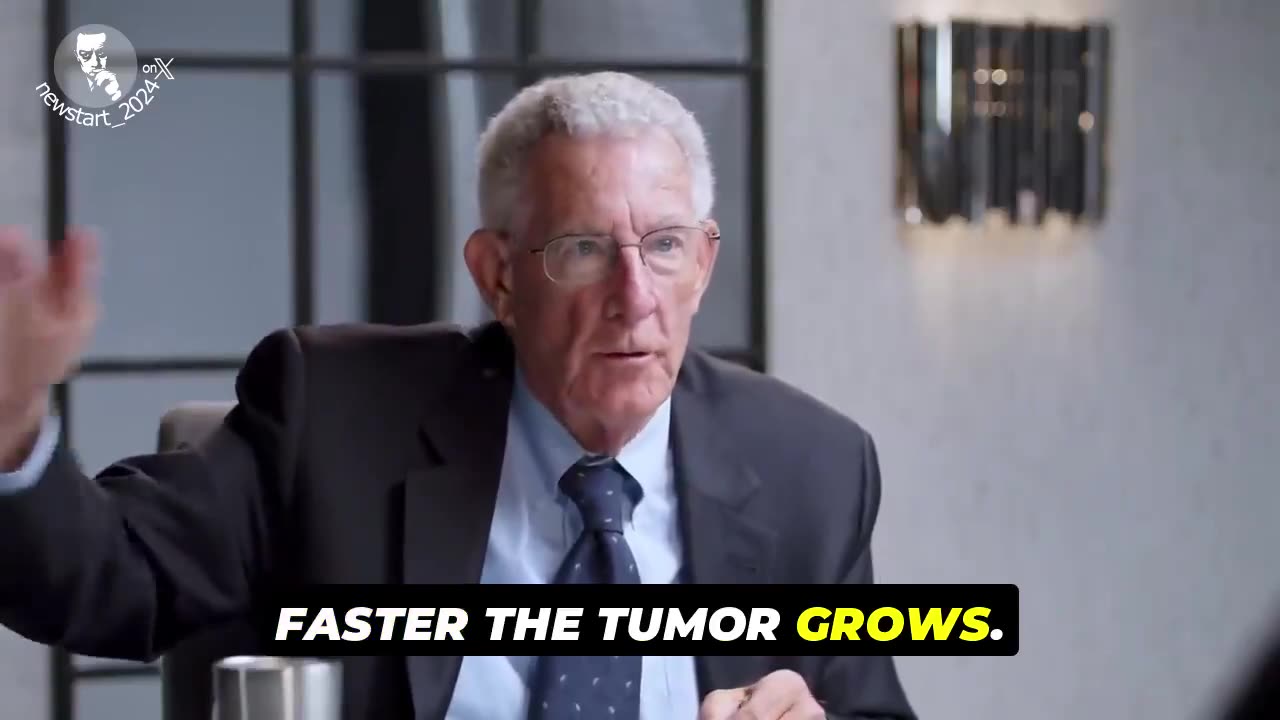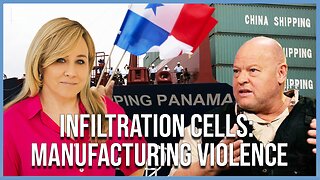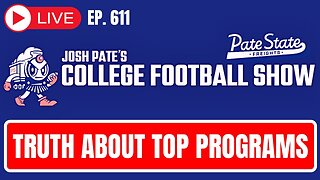Premium Only Content

Dr Thomas Seyfried - The higher your blood sugar, the faster the tumor grows
In his appearance on "The Diary of a CEO" podcast, Dr. Thomas Seyfried, a professor at Boston College, challenges conventional views on cancer by presenting it as a metabolic disease rather than a genetic one.
Dr. Thomas Seyfried: "Lynda Nebling was a PhD nursing student at Case Western Reserve University in Ohio, and she took these two little hopeless kids, brain cancer, we call hopeless cases, when they have no... predictability of long-term survival. And she gave them a ketogenic diet, the lower blood sugar, and she was able to rescue these kids."
"One eventually died. The other one was lost to follow-up. And she said her strategy was based on what Otto Warburg had said about glucose and cancer. So then I said, Warburg. I said, who the hell? What? Let me go back and check out who this guy was and what he did, because I was seeing similar things in the mouse with that drug that was lowering glucose and we were shrinking these tumor cells."
"And we published a paper, one of the first ever papers linking that how high your blood sugar is determines how fast your tumor will grow in the mice. And now how this has been replicated in all human cancers. The higher your blood sugar, the faster the tumor grows, the lower the blood sugar, the slower the tumor grows."
"Undeniable for all different human mouse cancers. Wow. So Warburg had said this a long time ago, back in the 1920s. He was taking slices of all kinds of human and rat, mouse tumors, and slicing them up. And he noticed something really strange about these cancers. They take in less oxygen compared to the normal tissue from which they came. Wow, so they're kind of like oxygen deprived."
"And they were throwing out this lactic acid waste product that he was saying. And they were taking in so much more glucose than the normal. So the normal cells take in just a little bit of glucose, and they can make tremendous energy from a tiny amount."
"This guy was taking in huge amounts of glucose, but not fully metabolizing it to CO2 and water, but dumping it out as lactic acid, which is a breakdown product of glucose that is not fully metabolized in the cell. Wow, he said, this is unbelievable. And then he did all kinds of tissue. I looked at his data."
"It was unbelievable. He was cutting humans, mice, rats, and seeing the same thing over and over again. And he was saying the origin of cancer has to do with something. in the ability of the mitochondria, the organelle, to generate efficient energy from oxygen."
"It's the part of the cell that creates energy through oxidative phosphorylation, which is burning energy using oxygen. It's an engine, a very highly efficient engine. This is an organelle. You have to realize we have the cell."
"And we have a nucleus that everybody knows about. this nucleus, and then we have all these little organelles in there. We have lysosomes and we have the mitochondrion, which is like a spaghetti network inside the cell. They fuse, it's actually a second living, it's a second living organism inside our cells."
"And to simplify what they do, the mitochondria, they convert oxygen and glucose into energy? Yes, they combust energy. They take the foods that we have carbon-hydrogen bonds, okay, and we break those down inside our mitochondria."
"And when we break those bonds down, we create a hydrogen gradient, and we dissipate that gradient through an impeller mechanism that generates energy like crazy. It's unbelievable. Very efficient, highly efficient. But the cancer cell has corruption in that system. But it doesn't happen overnight."
"As Warburg said, if you break that system too acutely and too fast, the cell will die. It doesn't have the... So you have to have two things to get from oxidative phosphorylation to energy with minimal oxygen fermentation."
"From a normal cell to a cancer cell doesn't happen overnight. It's a chronic damage to the ability of that organelle inside the cell to generate efficient energy. So all we have to know with cancer is that how are they growing so rapidly? Why are they going out of control? How come it's so hard to kill them?"
"Because as long as you have those fermentable fuels that drive this ancient fermentation pathway, they will continue to grow. They're very hard to kill. And the fermenting fuels are glucose and glutamine."
-
 7:48
7:48
Asher Press
16 hours agoMIKE BENZ: Not about AfD being “far right”...Memo to Elon: Here's why they're coming after you!
389 -
 15:27
15:27
TSPLY
22 hours agoCNN Forgets President Trump Can Fire Anyone He Wants From The Pentagon
6.72K13 -
 15:13
15:13
Clownfish TV
19 hours agoBluesky Trusts the Science? Scientists FLEEING X for Bluesky!
6.86K7 -
 29:50
29:50
The Finance Hub
14 hours ago $3.96 earnedBREAKING: TULSI GABBARD JUST DROPPED A MAJOR BOMBSHELL!!!
16.4K21 -
 11:32
11:32
ariellescarcella
16 hours ago"Being A Lady Boy Is Exciting!" (This Dude Has A Kid)
11.1K7 -
 1:03:33
1:03:33
The Dan Bongino Show
1 day agoSunday Special with Mike Benz, Michael Knowles, Rep. Tim Burchett and Rep. Andy Harris - 02/23/25
355K1.14K -
 1:36:21
1:36:21
Sarah Westall
12 hours agoViolence Erupting in the Panama Canal, Identifying Enemy Infiltration, Psyops Ongoing w/ Michael Yon
95K50 -
 1:56:25
1:56:25
Nerdrotic
15 hours ago $19.43 earnedThe Red Pyramid's Hidden Secrets | Forbidden Frontier #091
75.1K15 -
 2:08:53
2:08:53
vivafrei
23 hours agoEp. 252: Liberals DISQUALIFY Candidate from Race! DOGE Wins & Loses; Rumble Sues BRAZIL! & MORE!
180K271 -
 1:15:12
1:15:12
Josh Pate's College Football Show
14 hours ago $24.73 earnedCFB’s Top 12 Programs | TV Executives & Our Sport | USC Changes Coming | Early Championship Picks
120K3